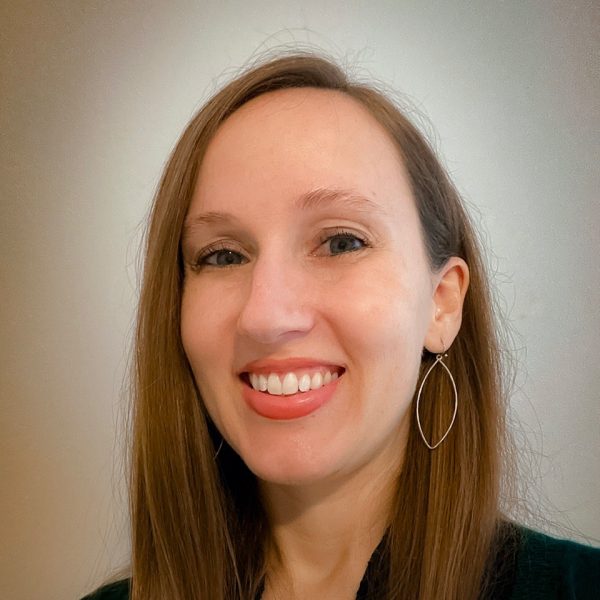Samantha Marshall

Bio
Dr. Marshall is an assistant professor in the Department of Teacher Education and Learning Sciences (TELS) at North Carolina State University. A first-generation college graduate, she received her B.S.E. in mathematics from Oklahoma Christian University, her M.A. from Columbia University, and her Ph.D. in Learning, Teaching & Diversity from Vanderbilt University. Her program of research is composed of two interrelated strands: (1) exploring how STEM learning environments can be more just and (2) investigating STEM teachers’ learning, particularly of justice-oriented pedagogies. Broadly, Dr. Marshall’s work informs the fields of STEM education, teacher education, and learning sciences.
Dr. Marshall’s work seeks to design, investigate, and refine supports for teachers’ learning. Her research projects have spanned questions of teachers’ learning through professional development, how teachers’ learning is shaped by enactment in context, as well as how STEM teachers learn ambitious, asset-based, and culturally sustaining pedagogies. Theoretically, she takes a situative and sociopolitical view on teachers’ learning to understand learning in context. Methodologically, she draws on qualitative tools from design-based research and case study research along with micro-analytic traditions like discourse and interaction analysis to uncover both mechanisms of teachers’ learning and promising innovations for supporting teacher learning. She has two current NSF-funded projects: (1) Project AWISE, which examines math teachers’ learning to support multilingual learners through teacher coaching, and (2) CAREER: Supporting Teachers to Leverage Students’ Languages in Mathematics. She has published in Journal of the Learning Sciences, Journal of Teacher Education, Teaching & Teacher Education, Journal of Mathematics Teacher Education, among others.
Programs
Education
Ph.D. Learning, Teaching and Diversity Vanderbilt University 2020
M.A. Secondary Education Columbia University 2014
B.S.E. Mathematics Oklahoma Christian University 2008
Area(s) of Expertise
teacher learning; professional development; mathematics education; culturally sustaining pedagogies; translanguaging pedagogies; qualitative methods
Publications
- Teachers as agentic synthesizers:Recontextualizing personally meaningful practices from professional development , JOURNAL OF THE LEARNING SCIENCES (2025)
- "So I don't have to switch up who I am": Experiences and perspectives of Black Language-speaking mathematics teachers on teaching that supports Black linguistic justice , JOURNAL OF MATHEMATICS TEACHER EDUCATION (2024)
- But What Does it Look Like in Maths?: A Framework for Culturally Sustaining Pedagogy in Mathematics , International Journal of Multicultural Education (2023)
- More than Multilingual: Investigating Teachers’ Learning to Support Multilingual Students through an Intersectional Lens , Educational Forum (2023)
- Reframing translanguaging practices to shift mathematics teachers' language ideologies , INTERNATIONAL JOURNAL OF QUALITATIVE STUDIES IN EDUCATION (2023)
- "Even when it was hard, you pushed us to improve": Emotions and teacher learning in coaching conversations , TEACHING AND TEACHER EDUCATION (2022)
- LEARNING ABOUT TEACHING THROUGH MOMENTS OF INSIGHT , Teacher Learning of Ambitious and Equitable Mathematics Instruction: A Sociocultural Approach (2022)
- Using Problem (Re)framing and Teachers' Pedagogical Responsibility to Facilitate Teacher Learning Opportunities , Proceedings of International Conference of the Learning Sciences, ICLS (2022)
- What Makes Mathematics Teacher Coaching Effective? A Call for a Justice-Oriented Perspective , JOURNAL OF TEACHER EDUCATION (2021)
- Analytical designs: Goodwin’s substrates as a tool for studying learning , The Interdisciplinarity of the Learning Sciences, 14th International Conference of the Learning Sciences (ICLS) 2020 (2020)
Grants
In this Level I early stage Design and Development study on Teaching, using design-based research, we aim to design, implement, investigate, and iteratively refine a video-based coaching model to develop mathematics teachers��� responsive pedagogies for linguistically marginalized students. Building from cutting edge research on linguistically responsive mathematics pedagogies (Adler, 2021; de Araujo & Smith, 2021; Marshall et al., in press; Song & Coppersmith, 2020), this project addresses the persistent need to foster mathematics teachers��� learning about supporting linguistically marginalized students (Lucas & Villegas, 2010; Prediger, 2019). Our novel model centers the experiences of students through video clips as rich tools for teacher learning. Our approach builds from key findings from our small prior study: that video-based coaching can support teachers in learning justice-oriented pedagogies such as social justice mathematics (Marshall, 2022) and learning to disrupt racialized patterns of exclusion in mathematics classrooms (Marshall, 2020) by supporting teachers��� sensemaking about their own students��� unique experiences in mathematics classrooms and giving timely, formative feedback as teachers encounter problems of practice (Horn et al., 2022). Central to our model is this core insight: that classroom video holds potential for supporting teacher learning of responsive pedagogies because of its opening of a window into students��� experiences, proximity to practice, context-embeddedness, and affordances for troubleshooting such pedagogies soon after teachers try them in their classrooms. The scholars collaborating to lead this project have strong histories of work designing and investigating professional development for educational equity, and complementary expertise to build a powerful and scalable model for mathematics teachers learning of responsive pedagogies. Our overarching research question is: How do secondary mathematics teachers learn about supporting linguistically marginalized students? The primary outcomes of this research include: a portrait of the challenges and opportunities that mathematics teachers face in supporting linguistically marginalized students, an iteratively refined model of professional development for teachers��� learning of responsive pedagogies, and an empirically-grounded theory of teachers��� learning to support linguistically marginalized students.
Groups
Honors and Awards
- National Science Foundation Faculty Early Career Development (CAREER) Program
- National Science Foundation Graduate Research Fellowship Program (NSF GRFP)
- Distinguished Alumnus, Oklahoma Christian University College of Education
- Goodnight Early Career Innovator
News
- Assistant Professor of Mathematics Education Samantha Marshall to Partner with Teachers to Improve Translanguaging Pedagogy through NSF CAREER Grant
- Assistant Professors of Mathematics Education Sunghwan Byun and Samantha Marshall Receive Goodnight Early Career Innovators Award
- Meet Samantha Marshall